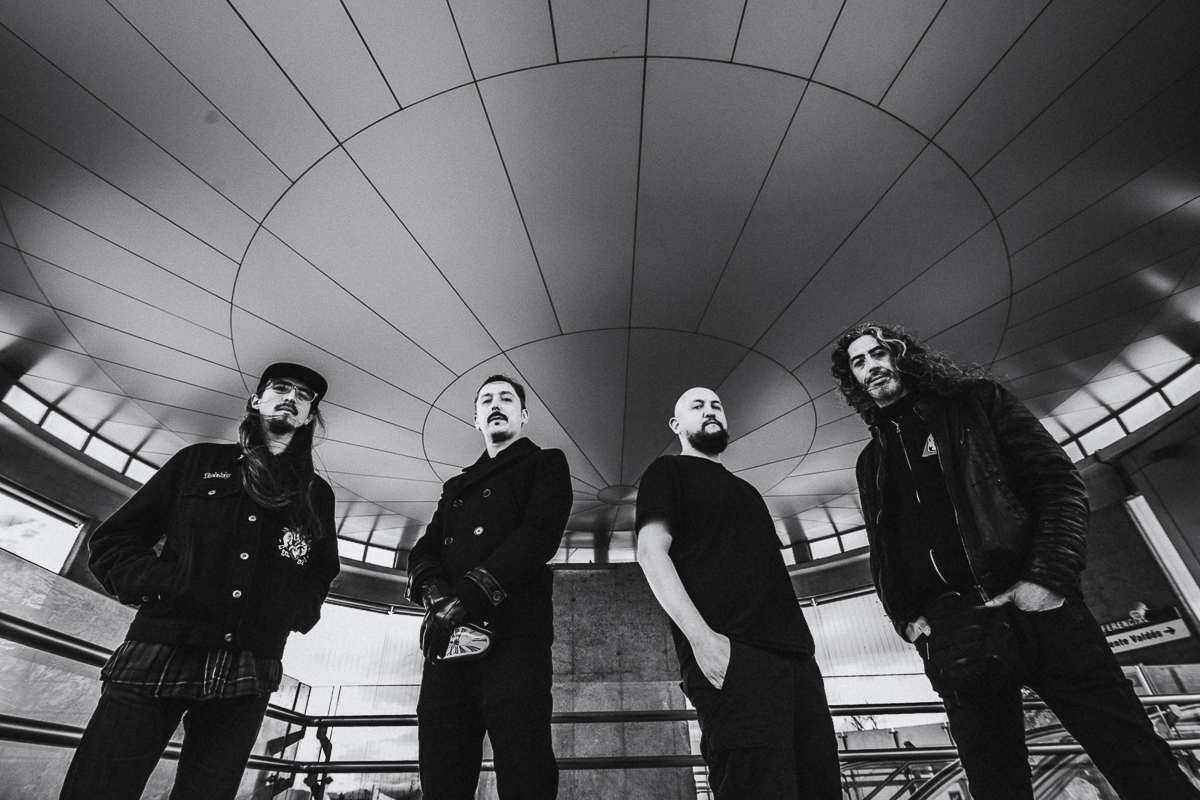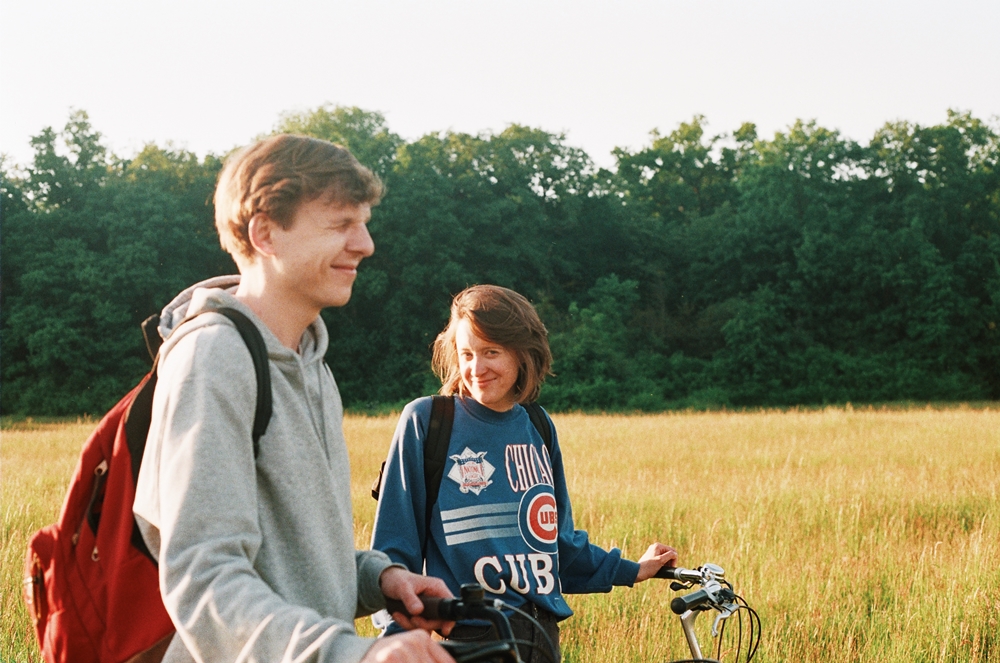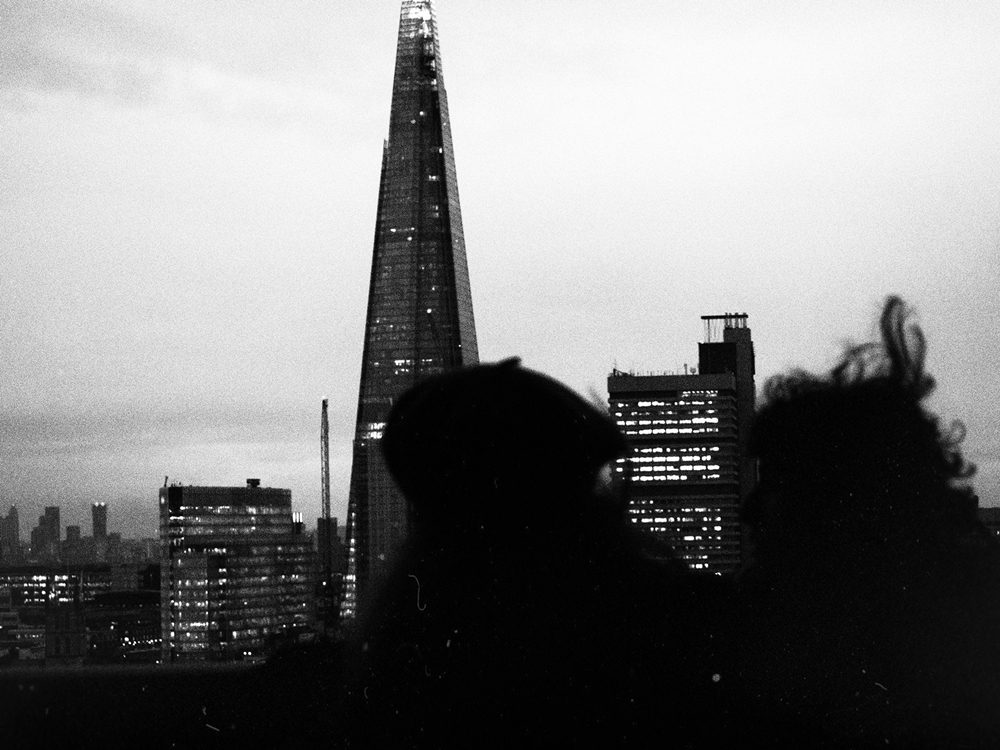As previously mentioned by my colleague on The 8 Stages of Becoming Obsessed with a Band: Listen to “Kainophobia” by Ruit Hora, the Chilean band is not a complicated band to love if you have a propensity to enjoy surprises. Ruit Hora was initially a one-man band, but things changed with “Kainophobia,” as Daniel Araya (voices, synthesizers, drum machines) is joined by musicians Carlos Fuentes (effects and drum machine), Fran Muñoz (drums), and Pablo Selman (bass). Out of curiosity, I interviewed Daniel about “Kainophobia” and so much more.
Hi, Daniel. Can you pinpoint a particular moment that made you dive into producing these sounds?
Hello, first of all, thank you for the space. The idea of working on Kainophobia starts in the year 2020. During that period, several social changes occurred in Chile, which increased with the pandemic. My way of coping with all that, added to personal issues, was sitting down to improvise on my synthesizers.
Given the state of mainstream culture that permeates how we consume media, how would you introduce your music to a stranger?
I would present the musical work of Ruit Hora as a sensory alternative that allows an abstraction of the world, without losing the proper meaning of a song. The possibility of reflecting and connecting with feelings for at least 38 minutes.
How do you think your sound has evolved over the years? Did you always have in mind to sound the way you sound today?
In the beginning, I had established that I would only use synthesizers and machines and I refused to incorporate other instruments. However, when I started working on Kainophobia, I felt that it could be treated soundly as a band, always having the synthesizers as protagonists. When Fran sent me the first demos of the songs with drums, the transmission of emotion was better marked on the first album.
I remember that the first time I heard a premix of the album in the studio, it sounded just as I had imagined it, a harmonious combination of human and machine
For me, music has a therapeutic meaning, in channeling the emotions that I cannot verbalize.
‘Kainophobia’ is not avant-garde in the conventional sense, and in this regard will only suit so many years. What are its main themes and how the album would be served best?
The theme of the album is in relation to different emotional aspects that are part of humanity. The above include sadness, anger, ego, uncertainty, etc. All are encompassed in the fear of generating changes or leaving the comfort zone, which is typical of people and one of the main difficulties that we establish ourselves to reach a state of well-being.
I think the best way to connect with the album is for the listener to give himself the time and space to listen calmly and unhurriedly, with the freedom to play repeatedly any sound passage that catches his attention.
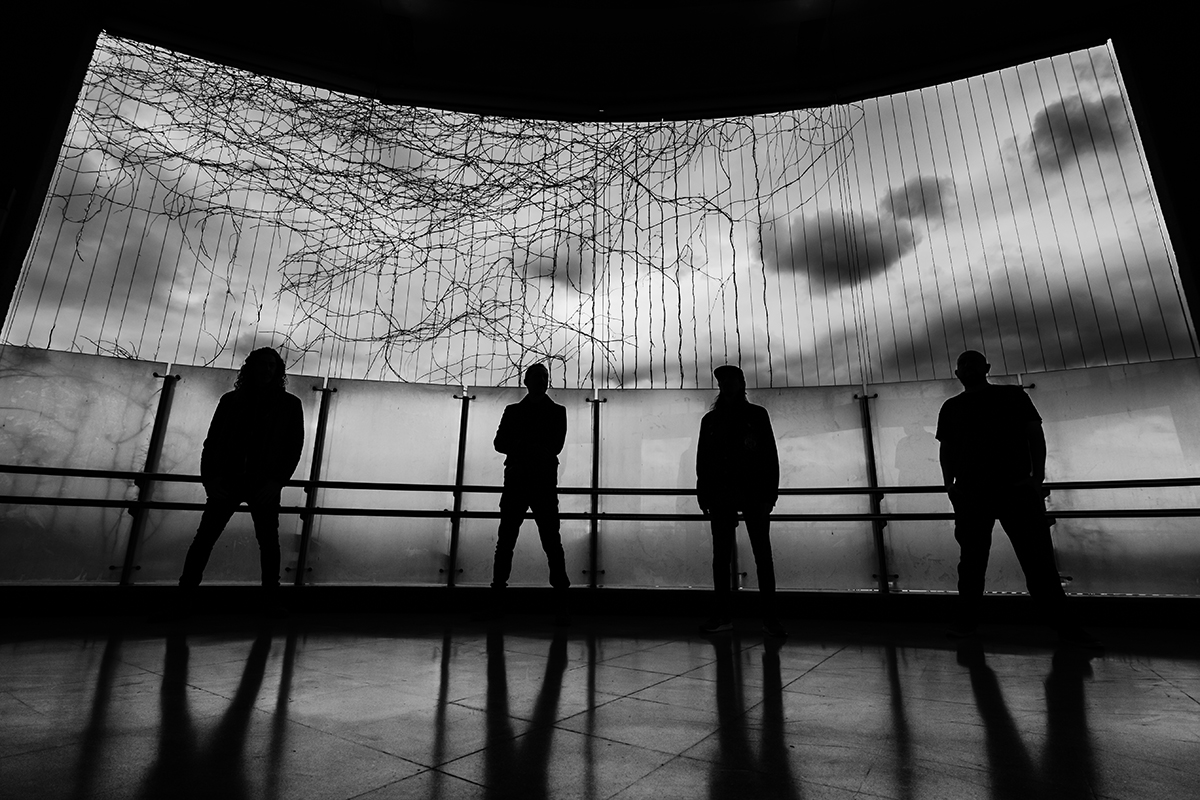
How should we relate to your music? What are your influences, and who keeps on inspiring you frequently?
I think the relationship between “kainophobia” and the listener is that the listener takes the time and looks for the right context to live the experience. The album has many hidden details, which appear after several listens. In addition, different emotions are expressed, from the reflective as in “the fall”, to the melancholy in “The higher you fly…” or the darkness in “Pazuzu”. This generates a complete transit through different emotional scenarios.
My influences are varied, but they are mainly based on soundtracks, synth-pop and dark wave of the 80s, trip hop, hip hop of the 90s, and black and doom metal of the 90s. I think Ulver is the artist that has been with me the longest. accompanied in my life, from the most extreme to the experimental
Take me through your sound design process. Does the conception come first or do the songs evolve naturally – do you have a clear idea of what it will be before you start to make it?
Everything has its origin in sitting down to “play” with the machines. For me, music has a therapeutic meaning, in channeling the emotions that I cannot verbalize. In that sense, I like the space of sitting down to play without any goal. I start trying sounds, effects, and different combinations until at one point something sounds that asks me for continuity. That’s when the process of creating a song just begins.
I usually put together sound drafts, which arise from these instances of sound play. I review them several times and begin to combine them until they take on more structure. Finally, I start to stammer about what would be the vocal melody line. Once I have it established, I turn it into words.
When listeners make their way through your songs, what do you want to feel? What kind of situation do you see your music accompanying?
One of the graces of this album is that you can enjoy listening to the complete work or listening to 1 or 2 songs. I relate to the above in the sense that it is a work that can be used as a way of internal reflection or enjoyed while walking or driving.
Personally, I like that people experience “Kainophobia” in different contexts and feel that feeling of “what the hell is this I hear? What is this that sounds like everything to me but at the same time sounds like something unknown?
What do you feel is the best song on ‘Kainophobia’ and why?
Difficult question, but I would dare to say that there are two. The first is “Transition Towards The Inevitable” since it has the sound and character of how I would like to sound transversally on an album in which I would work again in a band format. I like the unpredictability of the journey that the song proposes.
And the second choice is the closing theme of the album, called “Kainophobia”. The choice of this track is basically because at some point I no longer want to work in the “traditional format”, that is, band=verse=chorus, etc. One of my goals is to generate a work closer to a soundtrack, and I think this song is an approach to that.
What does it mean to play and live in the millennial generation of avant-garde/dark electro artists? What do you borrow from those who came before you, and what do you do to push the genre forward?
I like to live in a time when music no longer depends 100% on the guitar. Although there is a lot of music that I like in which the guitar supports the songs, for some time now the formula has been repetitive for me. In that sense, I think machines have gained space even in more hermetic genres like metal.
I will mention Ulver again to answer what I take from those who in the past decided to break the limits. And that last thing is precisely what I borrow, daring to play with the different sounds and musical worlds that exist.
What does Ruit Hora offer?
A respectful and harmonious proposal for those who seek to maintain the dark and mysterious essence of the sound, without having to resort to repeated formulas.
What music have you been listening to recently and what excites you for the remainder of the year?
Lately, I’ve been listening to a lot of 90’s pop: George Michael, Simply Red, Duran Duran, etc. In addition to an English musician named Andy Scott whom I listen to practically every day. There’s nothing out of metal that has captivated me for the last 10 years or so, they all sound the same. If it’s Doom everyone wants to sound like Candlemass, if it’s Black metal everyone wants to be Mgla, if I want to sound “different” I copy Opeth to be progressive.
I think the only thing that has somewhat refreshed the metal sound is Autor & the punisher. I guess there’s a lot of “kainophobia” in metal. We must not forget that it is a scene in which people validate themselves a lot based on the opinion that others may have about me, therefore I understand that there is a rigidity to getting out of a certain structure.
What other creative outputs do you engage in that we may not suspect?
At the moment I’m only involved in music. We are finishing the recording of an album with Favna Abisal, a rock/metal/Avantgarde (?) band in which I sing in Spanish. On the other hand, I am composing new material for Ruit Hora. I have about 12 songs to which I would only need to add my voices to start incorporating drums and human bass.
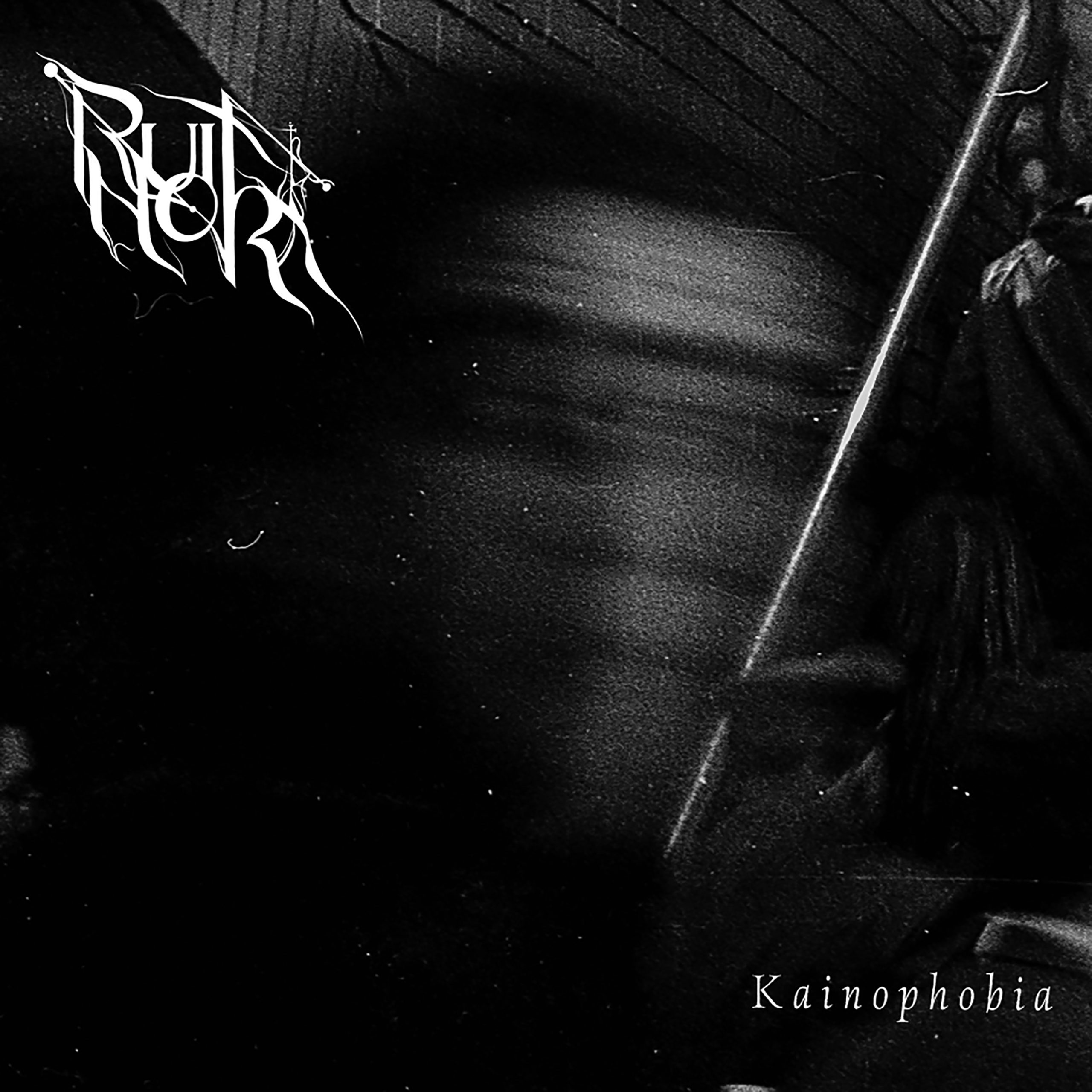
Follow Ruit Hora:
Facebook | Instagram | Bandcamp | Spotify | Youtube
